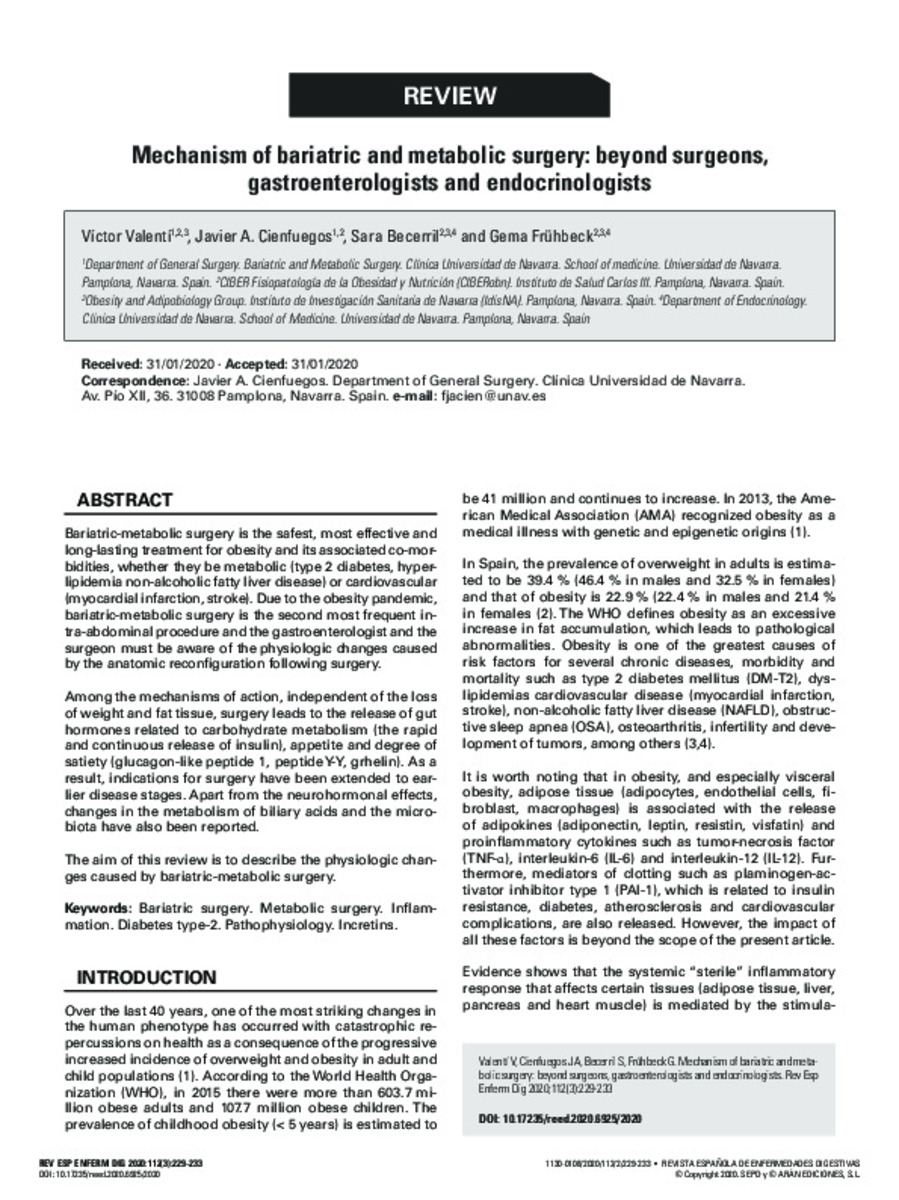Mechanism of bariatric and metabolic surgery: beyond surgeons, gastroenterologists and endocrinologists
Keywords:
Bariatric surgery
Metabolic surgery
Inflammation
Diabetes type-2
Pathophysiology
Incretins
Citation:
Valentí-Azcárate, V. (Víctor); Álvarez-Cienfuegos-Suárez, F. (Francisco Javier); Becerril-Mañas, S. (Sara); et al. "Mechanism of bariatric and metabolic surgery: beyond surgeons, gastroenterologists and endocrinologists". Revista Española de Enfermedades Digestivas. 112 (3), 2020, 229 - 233
Statistics and impact
0 citas en

0 citas en

Items in Dadun are protected by copyright, with all rights reserved, unless otherwise indicated.







